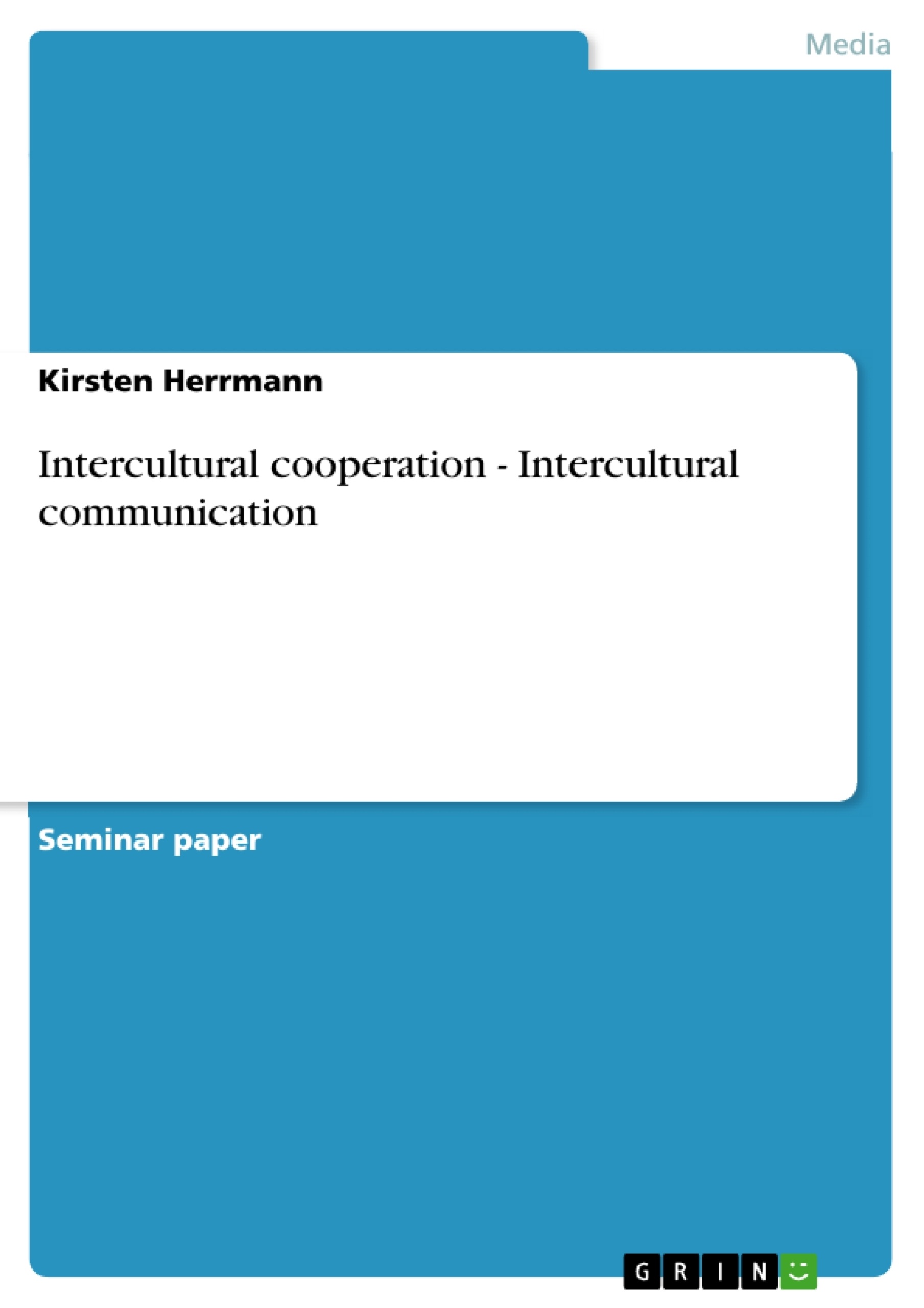“The globalization of markets and information networks has made consumption patterns and culture more uniform. Two developments are seemingly moving toward the opposite directions: an increasing uniformity of every-day culture on the one hand, and a drive to retain elements of individual cultures, on the other (University Witten/Herdecke, International society for Diversity Management (IDM), 2006)”. The IDM claims that social and organizational change is accelerating exponentially. There is a constantly search of identities through experience the differences. “Global cultures” in contemporary societies are constantly being challenged to meet this demand. Recognition and respect are requested to meet this differences. To face these requirements the following paper will discuss the meaning of intercultural competence. To underline the development of intercultural research the author will discuss the findings of Hofstede. Second the discussion will lead to the more contemporary aspects of intercultural competence such as Milton Bennett. In his theories about communication he points out the core set for global leadership in cross cultural contact. This chapter will focus especially on intercultural communication. The conclusion will lead the reader to future aspects of diversity management. “The world is full of confrontations between people, groups and nations who think, feel, and act differently (Hofstede, 1991, p.3).” Following the news and the establishing conflicts with the Arabian world and the West, his statement is still actual. Already in 1991 he postulates the demand of cooperation for solution of common problems like ecological, economical, military, hygienic, and meteorological developments which do not stop at national or regional borders (ibid.).
Inhaltsverzeichnis (Table of Contents)
- Preface
- Intercultural Cooperation - G. Hofstede
- Definition of Culture
- Cultural Relativisms
- Four Dimensions
- Theoretical Foundations of Intercultural Communication – M. Bennett
- Paradigms
- Principles
- The Five Frameworks
- Experience of Difference
- Discussion
- Conclusion
Zielsetzung und Themenschwerpunkte (Objectives and Key Themes)
This paper aims to explore the meaning of intercultural competence within the context of globalization and the increasing importance of diversity management. The author will analyze the findings of Geert Hofstede to understand the development of intercultural research, and then delve into the more contemporary aspects of intercultural competence through the theories of Milton Bennett. The paper will focus on intercultural communication and lead the reader to consider future aspects of diversity management in conclusion.
- The impact of globalization on cultural homogenization and the need for intercultural competence.
- The importance of understanding and respecting cultural differences in a diverse world.
- The role of intercultural communication in fostering effective global leadership and cross-cultural contact.
- The development of intercultural research and the contributions of prominent scholars like Geert Hofstede and Milton Bennett.
- The future directions of diversity management in a globalized world.
Zusammenfassung der Kapitel (Chapter Summaries)
- Preface: This chapter introduces the topic of intercultural competence in the context of globalization and the growing need for diversity management. It emphasizes the importance of understanding and respecting cultural differences in a world increasingly interconnected.
- Intercultural Cooperation - G. Hofstede: This chapter focuses on the work of Geert Hofstede, a pioneer in intercultural research. It examines his definition of culture, explores his concept of cultural relativism, and discusses his four dimensions of cultural differences. The chapter also provides an overview of his research methodology, which included studying IBM employees across various nations.
- Theoretical Foundations of Intercultural Communication – M. Bennett: This chapter delves into the work of Milton Bennett, who presents a contemporary framework for understanding intercultural communication. It explores Bennett's constructivist paradigm, his principles of intercultural communication, and his five frameworks for understanding cultural differences. The chapter also examines Bennett's concept of "experience of difference" and its role in fostering intercultural competence.
Schlüsselwörter (Keywords)
This paper explores key terms and concepts related to intercultural competence, diversity management, and global leadership. These include cultural differences, cultural relativism, intercultural communication, experience of difference, and the frameworks developed by scholars like Geert Hofstede and Milton Bennett. The paper aims to contribute to the ongoing discussion about understanding and navigating cultural differences in a globalized world.
Frequently Asked Questions
What is the main objective of this paper on intercultural cooperation?
The paper aims to explore the meaning of intercultural competence within the context of globalization and diversity management, specifically analyzing the contributions of Geert Hofstede and Milton Bennett.
How does Geert Hofstede contribute to the research in this document?
Hofstede is discussed as a pioneer who defined culture through four dimensions and the concept of cultural relativism, based on his research with IBM employees across various nations.
What is Milton Bennett's role in intercultural communication theory?
Milton Bennett provides a contemporary framework focusing on a constructivist paradigm, principles of intercultural communication, and the concept of the 'experience of difference.'
Why is intercultural competence important in a globalized world?
Globalization creates a tension between cultural uniformity and the drive to retain individual identities, making intercultural competence essential for solving common ecological, economical, and social problems.
What are the key themes addressed in the chapter summaries?
Key themes include the impact of globalization on culture, the importance of respect for differences, and the development of frameworks for global leadership in cross-cultural contact.
- Quote paper
- Master Science Kirsten Herrmann (Author), 2006, Intercultural cooperation - Intercultural communication, Munich, GRIN Verlag, https://www.grin.com/document/57126



